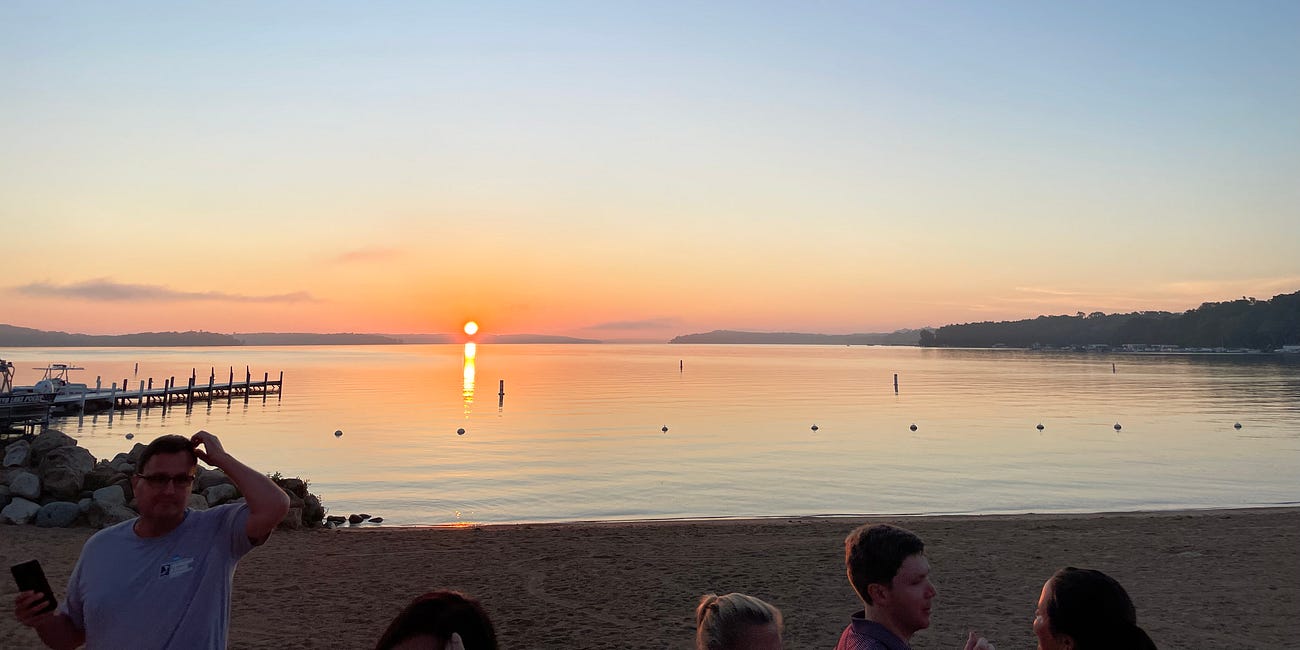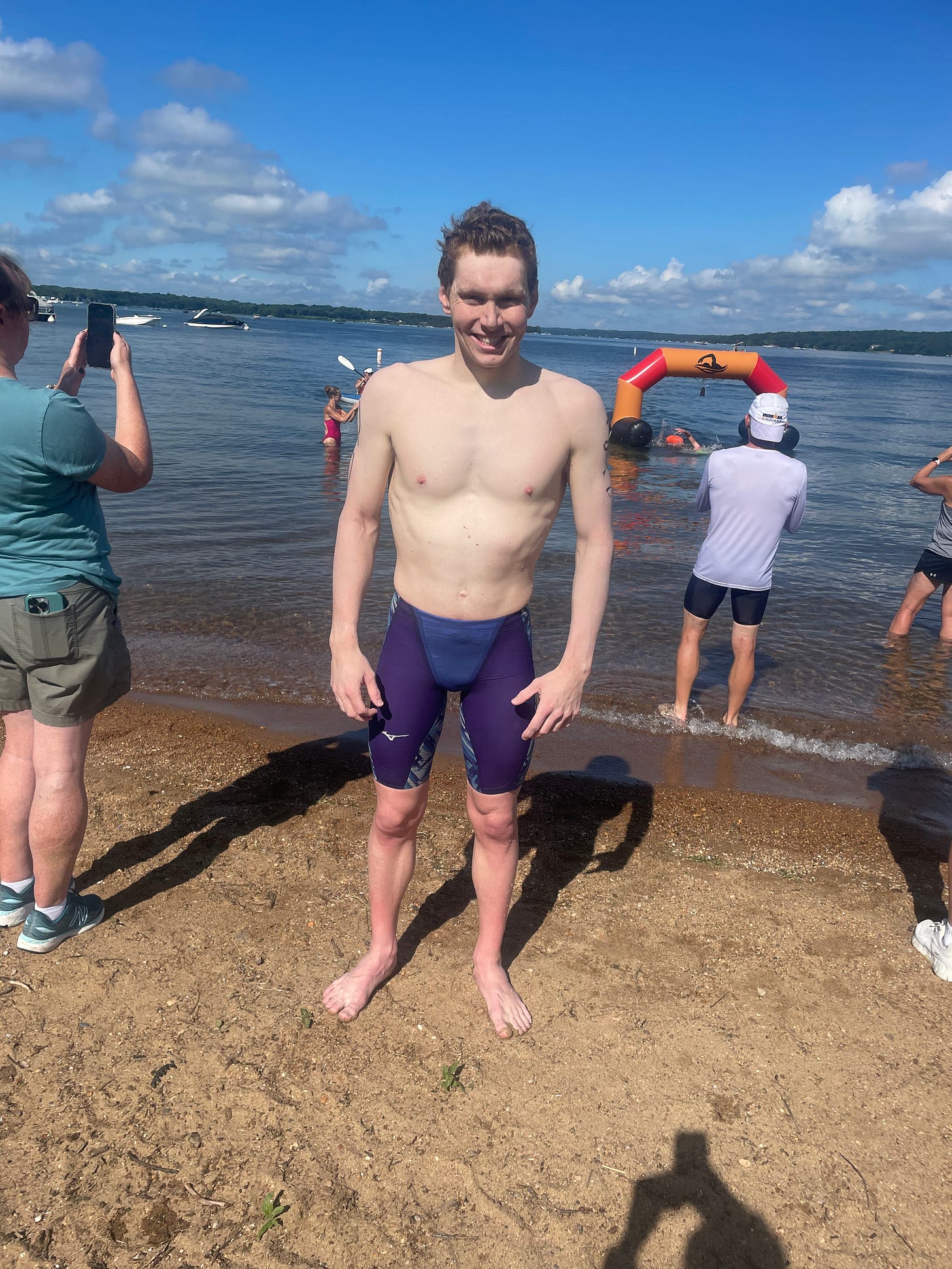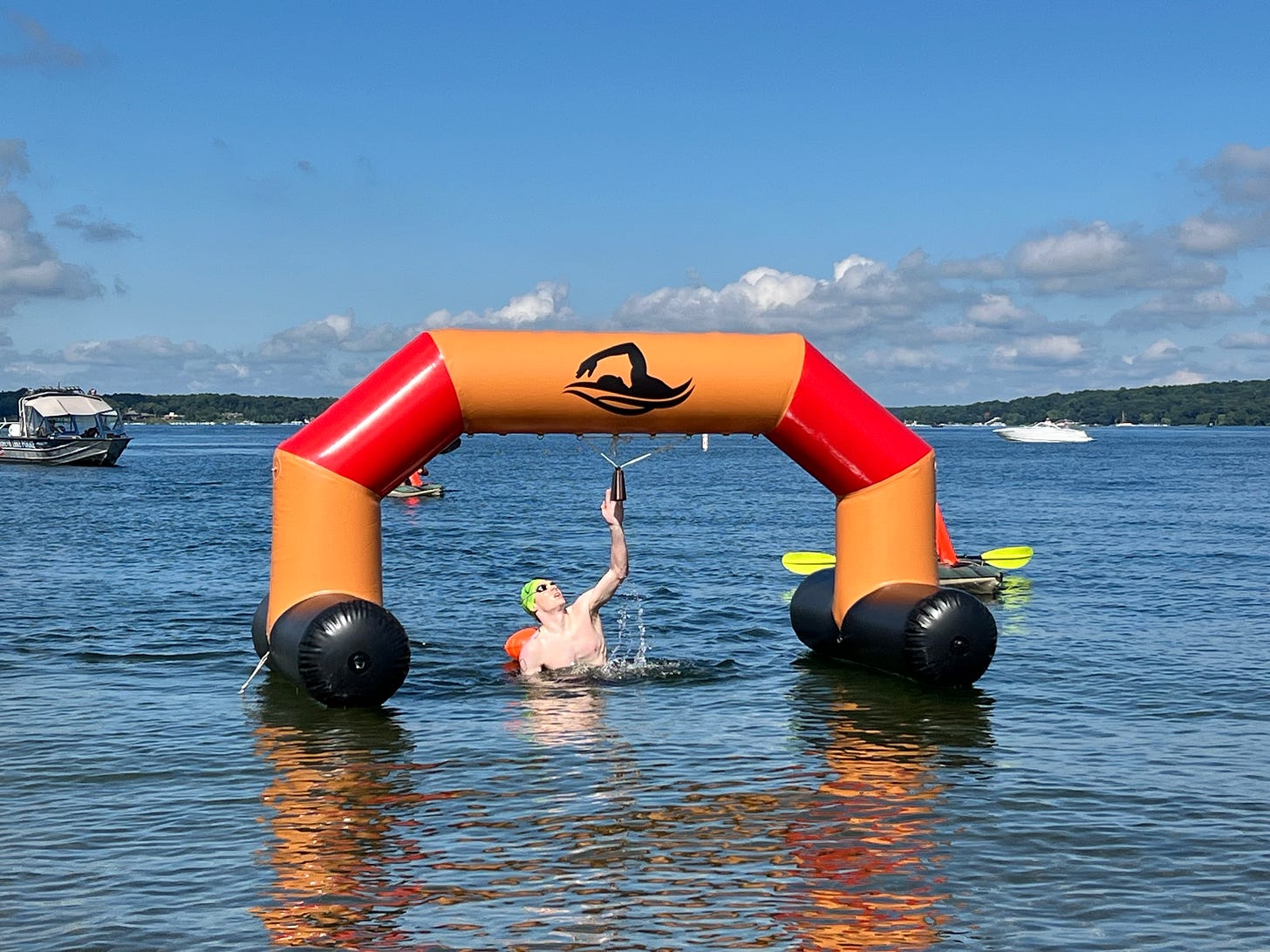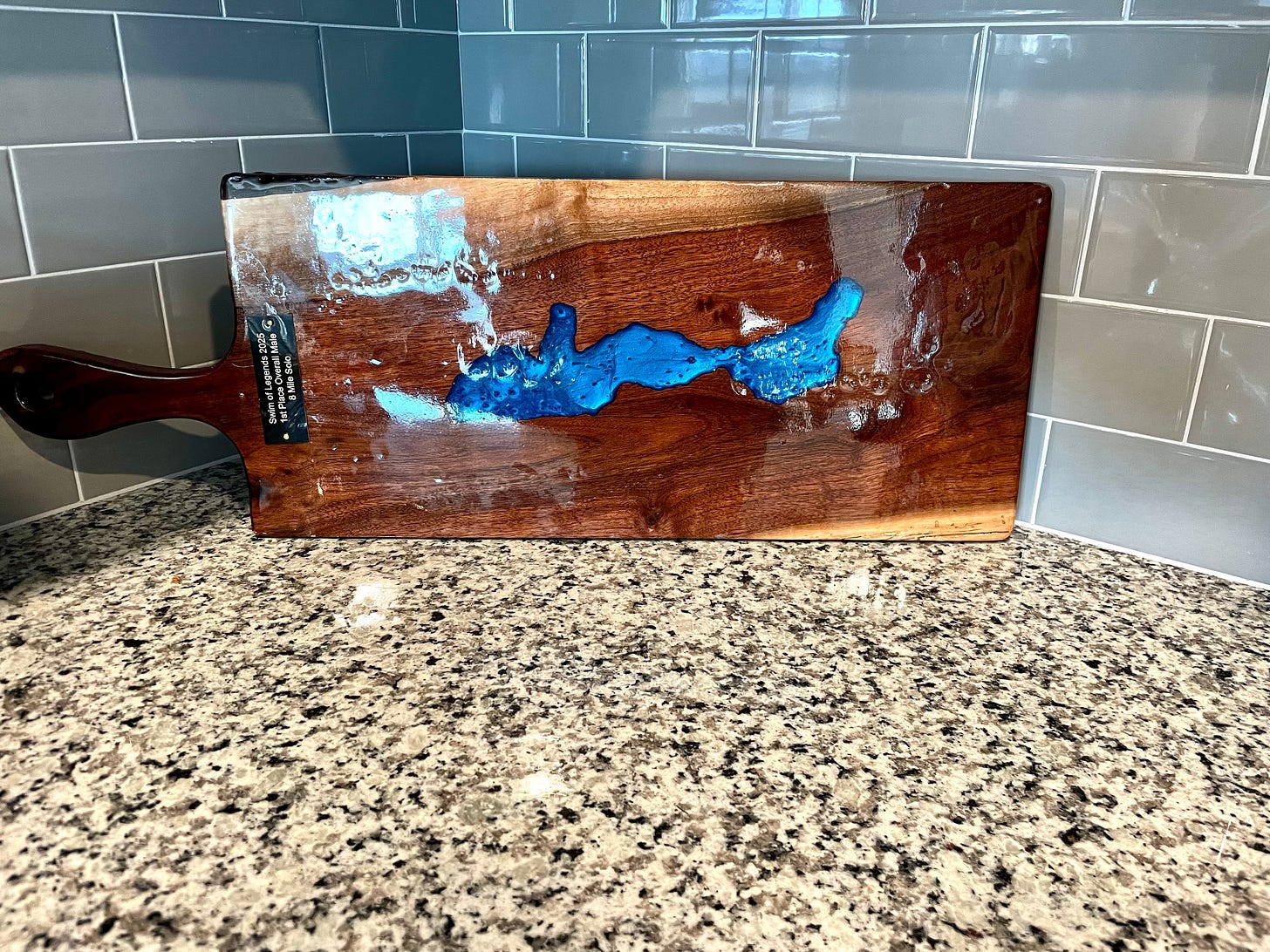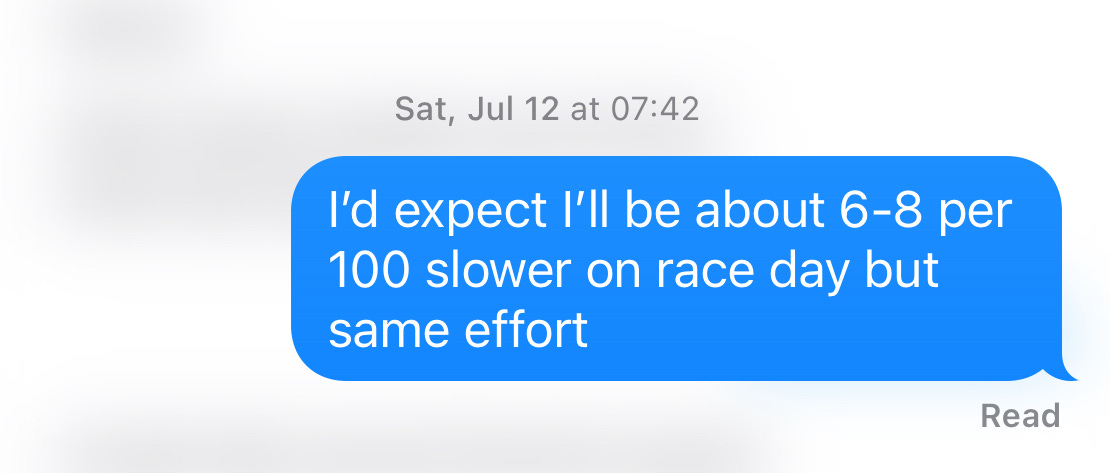On the start line
One big swim Part II
It’s been just over a week since I took on The Swim of Legends in Lake Geneva, Wisconsin. If you caught Part I, you know I put in a focused training block to prepare for the 8-mile journey across the lake. That is linked below—
On the start line
It is coming up on a year since I lasted entered, trained, and competed in an endurance event. A year is a long time and short time all at once.
I’m happy to report that I not only finished the swim, but dipped under the 3-hour mark with a 2:59:54 and took first place overall.
Part II dives into race day itself with how it unfolded, what I took away from the experience, and what it might mean for future racing.
Setting the scene
A marathon open water swim was an event I was wholly unfamiliar with. I have done numerous 10, 12, or even 16K training days in the club/college swim days, but nothing that was this sustained nor in open water. As I mentioned in Part I, I did not take a single stroke in a lake leading into the event.
The Swim of Legends was 8 miles point to point from Fontana on Geneva Lake to Big Foot Beach. This traverses the southern shore of the lake. Each swimmer had kayak support for navigation, fuel, and morale. The water temp on the day was 79 degrees and you could see all of the way to the bottom for most of the trip across. Clear as day!
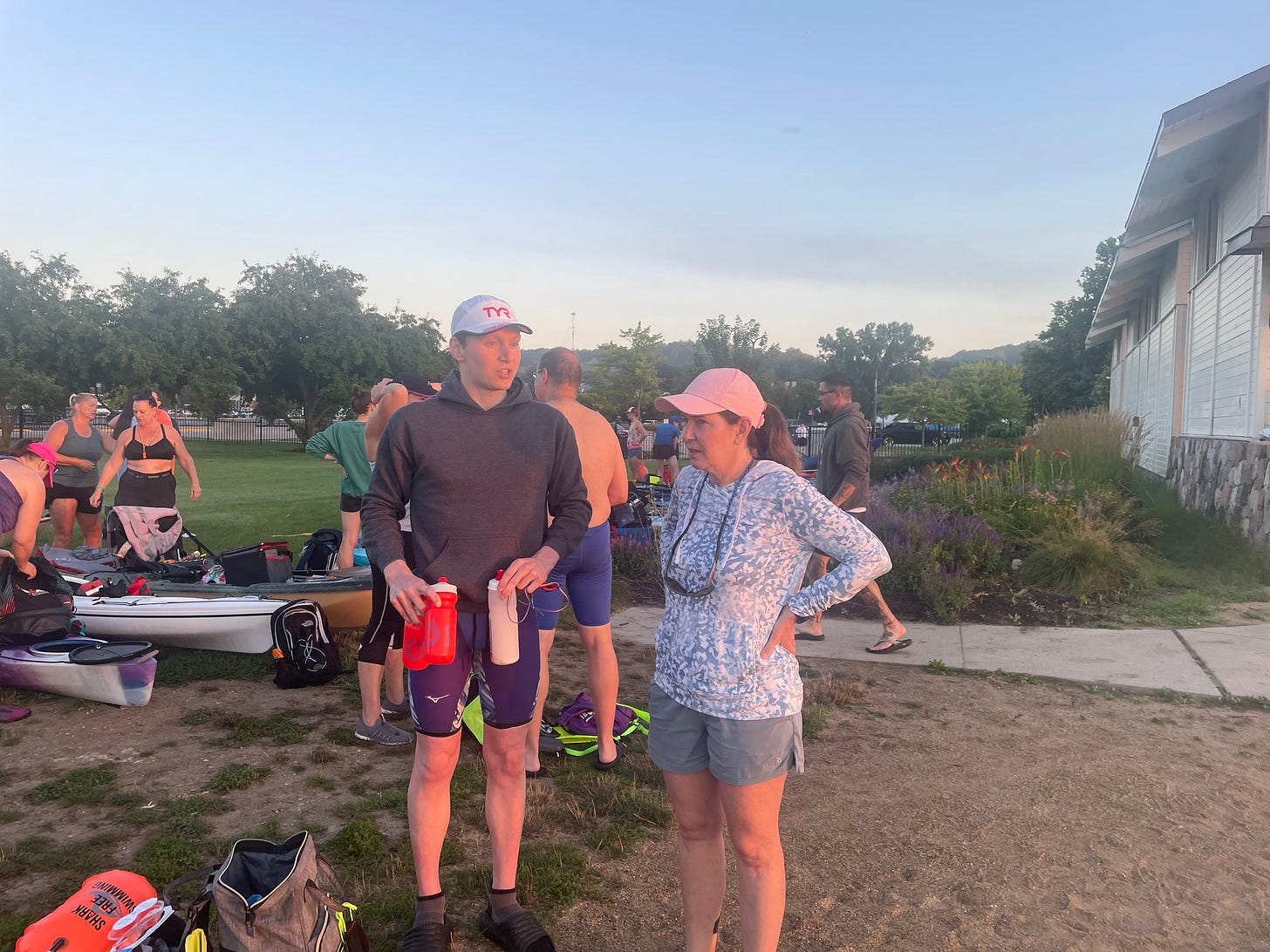
Into the race
I happened to look up some of the competitors before the race to get a feel for the level of athletes in attendance. There was a stout recent college grad named Kellen Roddy who had posted some serious distance freestyle times only a year before at the NCAAs meet. I figured he could definitely be someone to watch and maybe pace off of.
We started in the same wave and hung together for most of the first half of the race. While I was not there to “beat” people, having some competition helped with motivation.
My plan was to feed at 30 minutes once I got out of the traffic from the folks starting ahead of me and then feed every 20 minutes thereafter. This plan worked to perfection in the first half of the race hitting the fourth feeding right at the 4-mile marker; 90 minutes in. At this point, everything still felt relaxed. These marathon swims are interesting because the duration determines the difficulty. If you are in a hurry to make it hard, you are going to be toast.
I lifted the pace a little bit from mile 4 to 5 to see if I could drop Kellen and that seemed to work well. There was no ability to use my legs as I could feel a calf and quad cramp coming on which started as early as mile 2. I knew that if I cramped fully, my day was over.
After mile 5, the waves started to be a feature with the boaters, wakesurfers, and fisherman headed out for the day. This totally crushed my mental state, but staying relaxed helped. I took a feed around 10K/mile 6 and could feel the fatigue setting in. This feed was a bit longer than the previous ones. I got back on the tools as fast as possible but it was like trying to start up a failing engine. This should have been expected, though, as my longest swim leading in was 10K. Everything beyond that was uncharted waters, literally.
I knew I had it in me to finish, but it was not going to be very strong. I told my kayaker to move my feeds to every 10 minutes just to try to pull it out of the fire but this still was pretty demoralizing. I was getting agitated at the waves and with the fact that it did not feel much like swimming anymore. It was more just controlled floating. A shell of myself.
In all reality, I did not slow down that much. It just felt like I did.
With about a half mile to go, I tried to turn the arms over a little faster and was able to keep this going until the finishing arch. At last, I had made it across and in pretty good time too.
Takeaways
I say pretty good because the overall pace of 1:23/100 meters was about 6 seconds slower than some of my long intervals in my training swims. HOWEVER, I cannot make a complaint about this difference because I had texted an old swim pal a few weeks before with the following:
There is a healthy level of criticism and then there is being delusional. Being disappointed with the overall pace for a long event like this, especially given that I knew exactly what I was in for, is delusional. So, content with this performance I shall be.
What I was not prepared for was how quickly mind mindset went south. It was a rather steep downhill decline in morale after that 10K mark. Was it physical? Was it mental? Did I just describe “bonking” in way too many words? I do not know, but I do know that these long mental challenges are not my forte. I am glad I am not in pursuit of an Ironman or an ultramarathon any time soon. I prefer going fast and being done.
If I do target this event next year, setting the right expectations will be an immense help to improve the overall time and race experience.
What does this race mean in the grand scheme? I am not entirely sure. I am also not sure it is worth examining too deeply.
Most of the fun was in the preparation for the event and not so much on the day. This reflects the coach in me. I used to be in this to chase numbers or peak performances (ie: winning), but I have found more enjoyment in taking a hobbyist approach to my athletic endeavors; tinkering with things that pique my interests and seeing how it plays out.
Not only is this more valuable to me but also to the athletes I serve. Nobody wants a jerk of a coach who is too focused on winning to provide any meaningful insight.
This reframe is not a cop out or deflection that I cannot handle myself when it comes to triathlon. It is probably exactly what I need if I intend to make a healthy return to the sport in the future.
What is next?
In a typical year, I would always have the next race lined up on the calendar. Planning out a season was something I took seriously. But this year is not a typical year. It’s more unscripted. There is no “have to”.
This swim made me realize that swimming is fun when I remove the comparison to college/age group performances. I am no longer trying to not lose grasp on prior form, fitness, or achievement. That is a losing battle.
If I can keep this mindset consistent, I would like to take a crack at Masters Nationals 5K open water next year in April, but that is dependent on many factors at this time.
For the rest of this year, running has been a nice experiment to go alongside the swimming. There is room in the budget to continue to build out the running given that I have no interest in riding my bike more than once or twice a week. A fall running campaign is intriguing and may be the path I take.
There is always something to be learned from sport. For myself, it is not something that exists in isolation. It serves as an opportunity to make connections with people, on important topics, and across domains such as work, life, and play. It is a lifestyle and a fun one at that.


